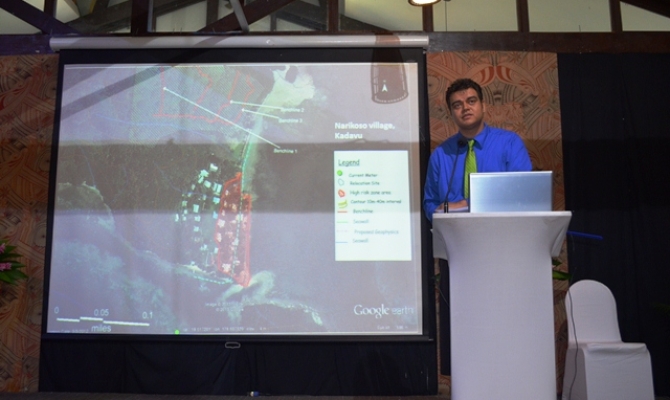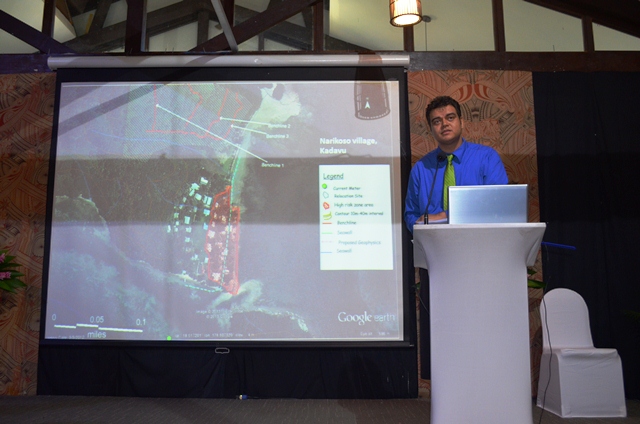
15 May 2015, Apia, Samoa, PCCR - Fiji provided a list of 'do's and don'ts' of relocating coastal communities deemed to be under threat by climate change at the annual Pacific Climate Change Roundtable (PCCR) in Apia, capital of Samoa.
That relocation should be a last resort was listed high up in the list, in that "there should be a strong need for thorough technical assessments and climate data to ensure that the move is indeed driven by changing climatic conditions."
Early detection of threats that will lead to relocation is also critical as it allows for conscientious planning. We recognise that there is no place for a "hastily and ill prepared plan," Fiji's new director of climate change Peter Emberson told PCCR delegates. His 'do's and don'ts' list were gleaned from lessons learnt in plans to relocate the coastal community of Narikoso in Fiji's southern province of Kadavu.
Emberson submitted that the availability of well-prepared technical assessments would allow for a better awareness of the most appropriate adaptation options affected communities can undertake to reduce perceived vulnerabilities.
In Narikoso's case following the completion of technical multi-stakeholder assessments the most appropriate adaptation technology options and livelihood support are being provided to the villagers. "The villagers of Narikoso were actively engaged in these assessments and whilst they are excited about the prospects of their move they recognise they have more time to plan properly and in an informed manner."
Other lessons that Emberson said could be incorporated into a national relocation guideline included:
- A multi-disciplinary team and a participatory approach are necessary in assessing and planning for potential relocation. This should be inclusive of technical specialists to social scientists and local community experts.
- Land use plans that provide options for communities faced with relocation, including how it impacts their socio-economic status.
- Any relocation should be carried out within an official national development and planning framework(s) to ensure that work is aligned to national plans, government priorities, and ensure that support is provided by relevant government and technical agencies.
- On food security, improving diversity of crops that can be introduced to bolster local food production is important, but equally crucial is the need to include an environment and economic assessment of introduced crops and vegetables.
- Household income and expenses survey approaches are critical in understanding the integrated responses to boost overall food security ecosystem of services support.
Fiji recognises the importance and urgency of climate induced relocation. Emberson informed the meeting that Government was now actively engaging a design and consultation processes to establish a relocation guideline that will assist its approach on relocating communities affected by the impacts climate change.
The Pacific Climate Change Roundtable was held from 12 – 14 May in Apia, Samoa. The event in its current format has been coordinated by SPREP with guidance from a steering committee.
The PCCR has been made possible with support from the Government of Switzerland, Government of Samoa, Government of Australia, European Union, GIZ, United Nations Development Program (UNDP), Secretariat of the Pacific Community (SPC), Pacific Islands Forum Secretariat (PIFS), University of the South Pacific (USP) and the Pacific Council of Churches (PCC). Additional funding support was provided by the EU-GIZ Adapting to Climate Change and Sustainable Energy (ACSE) Programme, and Climate Analytics through its High Level Support Mechanism (HLSM) project as well as the United States Agency for International Development (USAID). – Samisoni Pareti/SPREP/#pccr2015
